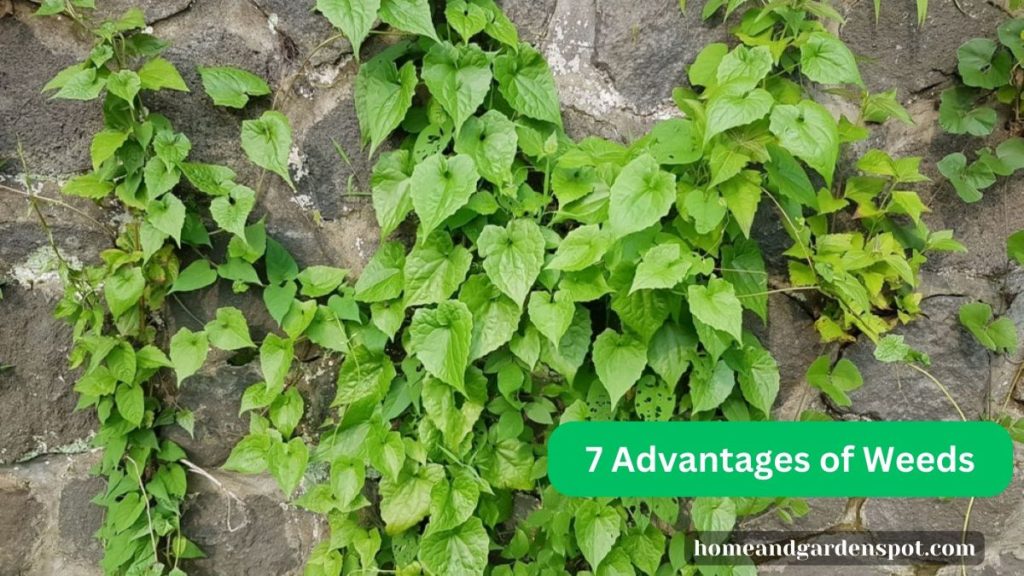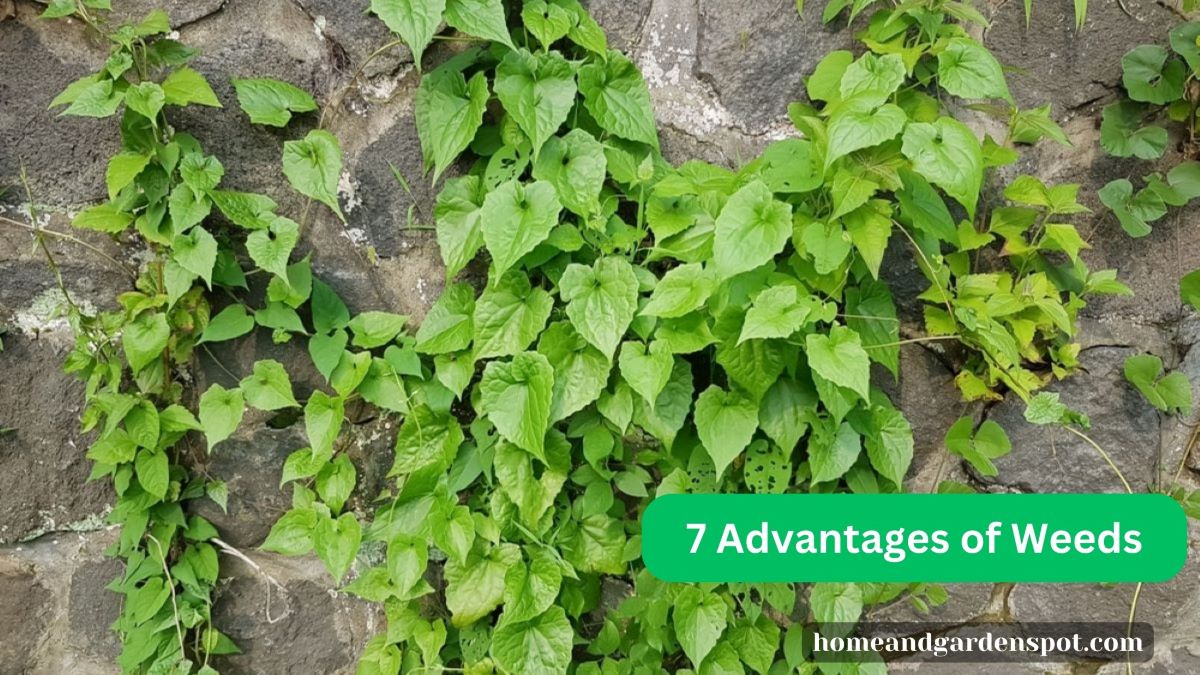Don’t toss those “weeds” in the compost just yet!
Those pesky plants you battle in your garden might be surprise superheroes in disguise.
Yep, weeds can actually benefit your beloved blooms and veggies in surprising ways.
From hidden soil boosters to secret sanctuaries for helpful creatures, these misunderstood plants might be the missing piece to a thriving garden ecosystem.
Ready to unlock the secret lives of weeds and transform them from foes to fantastic friends?
Well, let’s dig into the advantages/benefits of weeds in your garden.

What are Weeds?
Weeds are plants that grow in undesirable locations, interfering with human preferences, needs, or goals.
They are not classified based on their botanical characteristics, but rather on their context and impact on human activities.
Weeds can be found in various settings such as farms, gardens, lawns, parks, and recreational spaces.
These plants are often characterized by their ability to thrive in disturbed environments and adapt to human management.
7 Advantages of Weeds
1. Taking care of and improving the soil
Weeds are often very important for keeping the land healthy.
A lot of different kinds of weeds are good at breaking up hardened soil, which can help water and air get into the soil.
Also, weeds like clovers are nitrogen-fixers, which means they can change nitrogen in the air into a form that plants can use.
This makes the soil naturally better.
Weeds’ root systems also help to keep the ground, which is important for plant growth, stable and stop it from washing away.
2. Help for biological diversity
Weeds can help the variety of plants and animals in a yard. Many kinds of insects, including pollinators like bees and butterflies, need weeds to live.
Pollinators are very important for many plants because they spread pollen.
They also give other animals a place to live and food, which makes the environment more stable and balanced.
3. Mulch and ground cover made from plants
You can use weeds as a natural mulch to cover bare spots in your yard where other plants might not do well.
With this ground cover, less water evaporates from the earth, keeping it wet and lowering the need to water it often.
It also stops the growth of other weeds that could be more widespread and keeps the soil from changing too much, which protects plants that are more easily hurt.
Mulching sound interesting?
Well, check out some of my other helpful guides:
Will Grass Grow Through Mulch?
Bugs in Mulch – What You Can Do & Tips for Bug Prevention
4. Sign of Healthy Soil
There is a lot you can learn about the health of your land from the kinds of weeds that grow well there.
For instance, dandelion flowers mean that the soil is acidic, while nettles mean that the soil is rich.
This knowledge can be very helpful for gardeners who want to change how they handle the dirt so that their plants can grow better.
5. Possibility of Uses in Medicine and Food
A lot of weeds are not only tasty, but they are also good for you and can even be used as medicine.
You can put dandelion leaves in salads, and they are full of vitamins and minerals.
Plantain, which grows in lawns, has been used for a long time to treat skin problems.
By learning about these qualities, you can turn something that you might think of as a problem in your yard into a useful tool.
6. Cost-Effective Gardening
Weeds are a cheap addition to the garden because they don’t need to be planted, fertilized, or cared for in any special way.
They can fill in gaps in fields so you don’t have to buy as many new plants. This way, you can have a lush, varied garden scenery without spending more money.
7. Pest Control
Weeds can be used as trap crops to keep pests away from more valuable yard plants.
With this natural method, you won’t have to use as many chemical poisons, which are bad for the earth and other living things.
Weeds as Allies, Not Always Enemies
Weeds are often thought of as just annoying garden pests, but they can actually help keep and improve the health and variety of your yard. Integrated Pest Management (IPM) encourages using natural and less damaging ways to get rid of pests.
This idea of seeing weeds as helpful friends comes from IPM.
To keep the environment healthy, weeds are very important.
They provide homes and food for many living things, such as microorganisms and helpful insects that help keep the soil healthy.
Some plants, for instance, can draw pollinators like bees and butterflies, as well as predatory insects that help keep the number of pests in check.
This cuts down on the need for chemical poisons, which can hurt the environment and animals that aren’t meant to be killed.
Moreover, weeds can be considered nature’s cover crops. They protect the soil by preventing erosion and maintaining moisture levels.
Conclusion
Weeds used to be seen as yard pests, but now they are more and more valued for their natural benefits in sustainable gardening.
Based on the ideas of Integrated Pest Management (IPM), this change sees plants not only as pests but also as important parts of the ecosystem that help keep it healthy and lessen the need for chemical controls.
When you carefully handle weeds instead of getting rid of them, you can take advantage of their natural benefits, such as protecting the soil, cycling nutrients, and providing a home for beneficial wildlife.
This will help create a garden that is both useful and good for the environment.

Leave a Reply